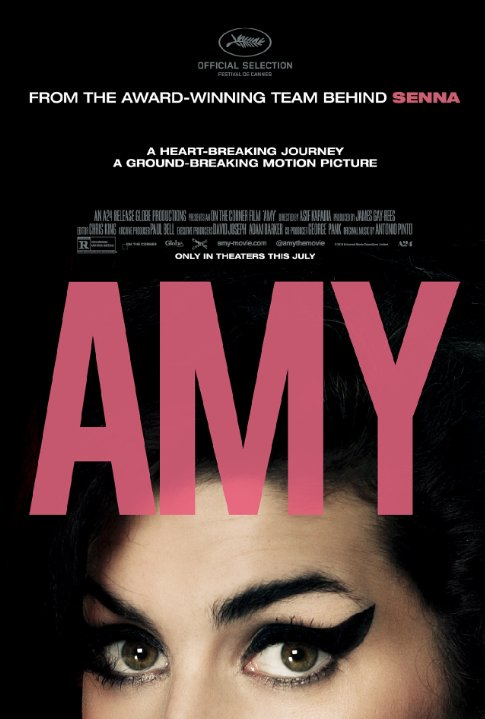film review: amy
Director Asif Kapadia (who brought us the acclaimed 2010 documentary Senna) has made another brutally honest documentary telling the turbulent and short life of Amy Winehouse. The story unfolds through the words of Winehouse herself through expertly edited home videos along with voiceovers and snippets from the people closest to her.
I was more than a little skeptical about Amy. One of the most fulfilling reasons to watch a film is to be provoked into feeling something one would not have felt of their own accord. For example, watching the 2009 documentary The Cove provokes a myriad of emotions; shock and disgust over how animals are treated, guilt for not taking an active role in campaigning and protesting such practices, even rage at learning the depth of depravity that humanity is capable of. Film is a powerful tool.
Documentaries such as Amy often provoke an ‘oh, isn’t that tragic’ response from its audiences and little else. We get a kind of sick glee from watching a person deteriorate so spectacularly, whilst telling ourselves our hearts are full of sympathy. It’s an exercise in which audiences can gawk at the avoidable tragedy of another person’s life in a way they tell themselves is compassionate.
Obviously there is no getting away from the fact that Amy Winehouse’s life was tragic. She suffered from drug addiction and bulimia, all under a glaring spotlight shone by people hungry to see her fail. However, the demonstration of tragedy is not what makes this film so worth seeing. Anyone half paying attention to the media frenzy that followed Winehouse everywhere she went could see that her life was horribly sad. What is especially disturbing is how the people around her – many of whom were given multiple opportunities to help Winehouse and stop her from being put into harmful situations – behaved towards her.
Talk show hosts that were clamouring to have her as their guest were among the first climb aboard the let’s-all-point-and-laugh-at-Amy-Winehouse train. Even the normally genial Graham Norton made not particularly original jokes about Winehouse’s deterioration. The message is clear: falling apart in the spotlight makes you fair game, and people may earn their bread and butter by taking cheap shots at easy victims.
Likewise, an especially difficult part of the film to watch was when Winehouse’s manager Raye Cosbert allowed her to perform in 2011 when she was clearly fragile, an obviously bad decision motivated entirely by Cosbert’s lust for profit and no regard for Winehouse’s wellbeing. Despite being a talented, smart, funny woman Winehouse was the victim not only of her own demons but also of the actions of those around her who should have know better.
Amy Winehouse made her pain into art. Listening to her music and hearing her sing so articulately and honestly about her struggles didn’t feel voyeuristic or cheap, unlike watching the tabloids murder her memory. When Winehouse invites the audience to understand and even participate in her pain it feels like an honour, partially because you have permission to do so. Reading articles penned by journalists whose living is made off creating spectacle out of tragedy feels dirty.
Amy is well worth seeing as it takes the audience further than the tired and ultimately dishonest trope of ‘oh, how sad.’ Amy Winehouse was exceptionally talented and her story deserves to be told.



Pingback: Oscars 2016 Wrap-Up | Jade Bate